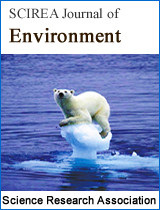TWO APPROACHES TO STUDYING THE OCEANOSPHERE
DOI: 10.54647/environmental610367 105 Downloads 94372 Views
Author(s)
Abstract
The study of analytical patterns in the evolution of individual components of the oceanosphere was laid down in oceanology by the programme of the first oceanological expedition aboard the Challenger at the end of the 19th century. The national geographical school solves problems that are relevant both in physical geography and oceanology: the study of the interaction of the components of nature, and the identification and description of natural territorial complexes of regional and local scales. Successful integrated study, development and protection of natural resources of the coastal zone and the shelf of the World Ocean require the use of analytical oceanological and integrated geographic research methods.
Keywords
Analytical studies, integrated studies, coastal zone and shelf, natural territorial complexes, zoning principles, underwater landscape concept, integrated landscape study programme.
Cite this paper
K.M. Petrov,
TWO APPROACHES TO STUDYING THE OCEANOSPHERE
, SCIREA Journal of Environment.
Volume 7, Issue 3, June 2023 | PP. 43-53.
10.54647/environmental610367
References
| [ 1 ] | Guryanova E.F., “Theory of map compilation of submerged landscapes // Collection of articles: Issues of Biostratigraphy of Continental Strata. Transactions of the 3rd session of All-Union Paleontological Society. Moscow. Gosgeotekhizdat, 1959. – pp. 52–61. |
| [ 2 ] | Guryeva Z.I., Petrov K.M., Sharkov V.V. Methods of Airborne Photography in Geological and Geomorphological Studying the Inner Shelf and Seacoasts. Atlas of Annotated Airborne Images. – Leningrad, Nedra, 1976. – 227 p. |
| [ 3 ] | Zenkevich L.A. General characteristics of ocean biogeocenoses and their comparison with land biogeocenoses // Programme and Procedure of Studying Biogeocenoses of the Aquatic Environment. – Moscow, 1970. |
| [ 4 ] | Petrov K.M. Underwater Landscapes: Theory, Research Methods. – Leningrad: Nauka: Leningrad branch, 1989. – 124 p. |
| [ 5 ] | Petrov K.M. Bionomy of the Ocean: Textbook. – St. Petersburg: St. Petersburg University Publishing House, 2004. – 242 p. |
| [ 6 ] | Petrov K.M. Biogeography of the Ocean. – Moscow: Academic Project Publishing House, 2008. – 328 p. |
| [ 7 ] | Petrov K.M. Principles of bionomic zoning of the coastal zone and shelf of the World Ocean. - St. Petersburg: Oceanology, 2020. – V. 60. – No. 3. - pp. 381-392. |
| [ 8 ] | Petrov K.M. Underwater landscape concept. – St. Petersburg: Proceedings of the Russian Geographical Society, 2020. – pp. 3-16. |
| [ 9 ] | Petrov K.M., Unagaev A.S. Tectonics and relief as a leading factor in the formation of underwater landscapes in shallow areas of the Caspian Sea near Azerbaijan. Advances in Biology & Earth Sciences. – 2021, Vol. 6, No. 2. – pp. 111-132. |
| [ 10 ] | Petrov K.M. Detailed Zoning of the Coastal and Shelf Areas of Marine Ecoregions: Case Study of the Black Sea, SCIREA Journal of Environment. -2022 Vol. 6, Is. 3.-pp. 20-33. |
| [ 11 ] | Setchell W.A. Geographical distribution of the marine algae // Science. NS - 1917, Vol. 45, No. 1157. - pp. 197-204. |
| [ 12 ] | Spalding MD, Allen G., Fox H., and Davidson NC, Marine ecoregions of the World: a bioregionalization of coast and shelf areas. – J. BioSci. – 2007, no. 57(2). – pp. 573-583. |
| [ 13 ] | Tansley А., 'The use and abuse of vegetational terms and concepts', 1935, Ecology 16: 284–307 |

